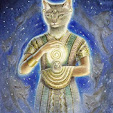Verdi: La Traviata
English National Opera at London Coliseum, 2 February 2013
Cast
Violetta Valery, a courtesan............................... .Corinne Winters
Alfredo Germont......................................................Ben Johnson
Giorgio Germont.....................................................Anthony Michaels-Moore
Flora Bervoix...........................................................Clare Presland
Gaston.......................................................................Paul Hopwood
Baron Douphol........................................................Matthew Hargreaves
Marquis D'Obigny....................................................Charles Johnston
Doctor Grenvil..........................................................Martin Lamb
Annina........................................................................Valerie Reid
Violetta's servant.....................................................David Newman
Messenger.................................................................Paul Sheehan
Girl...............................................................................Kezhe Julian Temir
Kitty Fry
7,12,21,26 Feb and 3 March)
Chorus and Orchestra of English National Opera
Conductor......................................................................Michael Hofstetter
Martin Fitzpatrick
21, 23 Feb
Directed by PETER KONWITSCHNY
Some wonderful, absolutely stunning singing, especially from the Violetta, Corinne Winters. There was some very sensitive playing from the orchestra under Michael Hofstetter, especially in the delicate strings of the Prelude. I quite liked the staging - it was stripped to the basis, with only a chair and a pile of books on the stage, and a pack of cards in Scene 3 _sic! The opera was reduced to four scenes, and played without an interval. Much use was made of the curtains.
The major omission was the Gypsy Chorus for the women and the Song about the bullfight for the men at the beginning of Flora's party - and in the last act the Carnival song that we usually hear in the distance outside Violetta's window as she lies dying in the last act.
The chorus was not neglected entirely, however, and they made a very impressive entrance in what is now Scene One rather than Act One.
The way it is staged makes it obvious that they are not really Violetta's friends - one of them even mocks her illness before she comes on and joins them, and then they push her and Alfredo together - Alfredo is portrayed as a bookish boy in glasses, who doesn't look at home in this environment - he even sings the Brindisi from a book! You can see what attracts him to Violetta, but not quite why she would feel the same attraction to him.
Ben Johnson didn't quite measure up to Corinne Winters' soaring heights, but he is a tenor the ENO can be proud of. She was splendid in 'sempre libera', giving an impression of desperation beneath the glittering determination to enjoy life while she can - she knows she hasn't got long. (She managed the high note, and held it!)
There is no change of scene between the first and second scenes. (Previously Acts One and Two). I thought maybe the idea was that this is all taking place in Violetta's memory as she dies - a series of flashbacks, perhaps. So they are not in her luxurious country house, for which she is paying, unknown to Alfredo, but still in the almost bare space, with one (1) chair, the pile of books, and the voluminous curtains.
And this is where the concept starts to break down, unfortunately. I was taken with the overall idea - stripping it to its essentials, with minimal staging, but..... first of all, it then makes a nonsense of the fact that the father wonders where all the money is coming from to pay for 'all this splendour'!! Much more serious is the fact that the director has decided that, in order to crank up the emotional blackmail, the father brings Alfredo's sister with him to visit Violetta. Furthermore, she's not a young woman about to enter into matrimony, she is a child in pigtails and glasses. AND the father hits her and knocks her over when she approaches Violetta....
..I have seen productions where he boxes Alfredo's ears, but that is more understandable!! The POINT of the scene is that he would never allow his daughter to be tainted by associating with women like Violetta.
Sadly also, Anthony Michaels-Moore is no longer up to the demands of the role - his voice sounded very raspy, and he kept missing the notes.
(This is Anthony Michaels-Moore as Giorgio Germont - you see what I mean about the curtains!)
Nevertheless, the scene between Alfredo and Violetta, when she takes her leave of him, was very moving, her 'Amami, Alfredo' bringing tears to the eyes (as usual!) The scene between Alfredo and his father was rather perfunctory, and we moved swiftly on to the next scene - Flora's party. Instead of throwing the money at Violetta, Alfredo pulls one of the curtains down, and then all the curtains get pulled down, and EVERYONE falls to the ground while the stage goes completely dark. The chorus express solidarity with Violetta, but one wonders how sincerely they mean it, considering their behaviour in the first scene......
Finally, she is left alone on the stage - Anina and the doctor come and go. There's one change of text that I found interesting, as it links back to the first scene and the portrayal of Alfredo as a bookish young man, ill at ease in this sophisticated company. The doctor asks her how she is feeling - in the original libretto she replies that she is in pain, but her soul is at peace, as she had been visited by a priest, and religion is such a comfort.Here she says instead - she is in pain, but she found solace in
reading - 'art is such a comfort when you are suffering'.
Alfredo returns, and they are re-united, too late.....
but in the end she is left alone on the stage, while the others are somewhere in the
auditorium. She does not fall dead, but disappears into the blackness at the back of
the stage - this is what made me think that Konwitschny envisaged it as a series of
flashbacks in the mind of the dying Violetta.
All in all - a wonderful evening musically - visually and dramatically less so,
but still worth seeing.














No comments:
Post a Comment